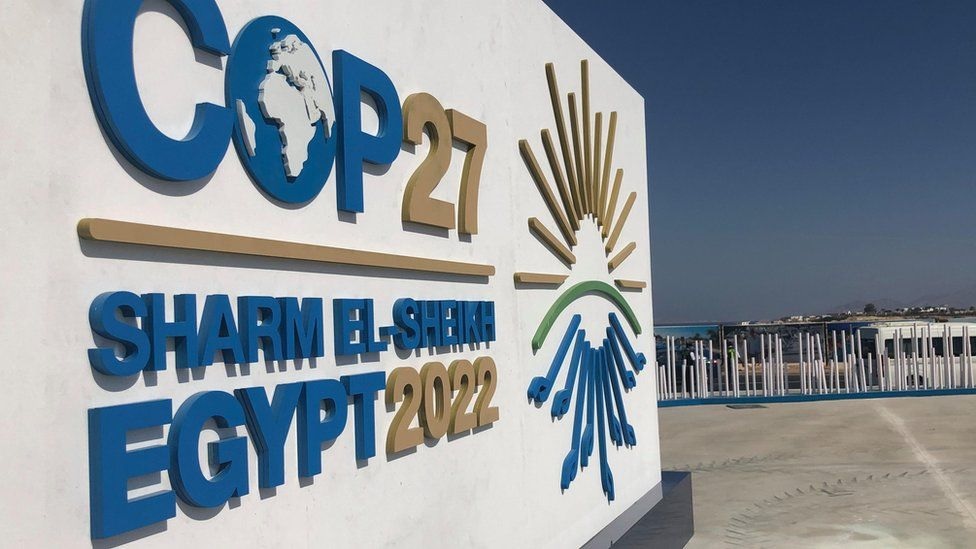“Together for Implementation”. That’s the message looming against the blue backdrop in Egypt to welcome hundreds of political and scientific leaders worldwide to the 27th session of the Conference of the Parties (COP).
The United Nations created the body in 1995 to combat global warming.
Marcelo Mena, former environment minister for former Chilean President Michelle Bachelet and current CEO of Global Methane Hub, is in the Egyptian city of Sharm el-Sheikh, where COP27 is taking place.
“Latin America is one of the continents most affected by climate change, and this essentially manifests itself in greater poverty and greater inequality,” he told Deutsche Welle (DW).

The conclusions of the 2021 report of the Intergovernmental Panel on Climate Change (IPCC) for Latin America were not very optimistic.
At the regional level, it confirms that average temperatures are rising and are expected to rise faster than the global average.
Similarly, higher rainfall is expected in countries such as Colombia and Ecuador, while precipitation is expected to decrease in Brazil, Chile, and Peru.
Other areas of concern include increased dryness and drought in agriculture in the region, as well as declining snowpack and glaciers in the Andes, which in turn would lead to increased flooding from rainfall.
Mena adds that “there is the pressure of deforestation due to the high demand for livestock and the fact that Europe exports its protein production capacity to other countries, which can also lead to an unfair burden on ecosystems.”
He argues that only a sustained and timely reduction in greenhouse gases can prevent climate collapse.
FINANCING IN THE REGION
Alicia Montalvo, manager of climate change mitigation and positive biodiversity at the CAF Development Bank of Latin America, will arrive at the UN Climate Change Conference in Sharm el-Sheikh on Thursday, November 10, to discuss Latin America’s challenges in combating climate change.
She told “DW” that a greater commitment is needed to “provide technical and financial solutions to the countries of the region and improve the capacity to identify and promote projects that can be effectively financed.”
Santiago Lorenzo, an expert with the Sustainable Development and Human Settlements Department of the Economic Commission for Latin America and the Caribbean (ECLAC), has a similar opinion.
According to Lorenzo, the pandemic and the conflict in Ukraine have negatively affected the region’s economies, resulting in a lack of fiscal space and preventing the implementation of green transition principles and long-term strategies to combat global warming.
“Latin America and the Caribbean can have a vibrant future with decisive climate action, but the right choices still need to be made.
“It will require public and private investments and an expansion of fiscal space to encourage their increase.
“These investments must address the usual structural challenges: social inequality, ecosystem degradation, and external constraints,” the ECLAC expert said in an interview with DW.
Montalvo says the issue of financing is recognized as a major point of discussion at COP27, which is why he is optimistic.
“This COP is an important turning point because it recognizes the problem of damage and loss for all countries suffering from the effects of climate change, and therefore gives a high priority to adaptation,” he explains.
The experts agree that the multilateral body must also take into account the losses and possible compensation for countries that suffer directly from the effects of global warming, with particular attention to Latin America and Africa.
SUPPORT FOR GUSTAVO PETRO
The words of the Colombian president on the day of the opening of COP27 did not go unnoticed.
“The COP is not working; we have to do something,” he said.
A day later, he added to his remarks by affirming that it was time to act globally, “with or without the permission of governments,” and that “there is no other way out of the climate crisis than to end the consumption of oil, coal, and hydrocarbons.”
Santiago Lorenzo of “ECLAC” agrees with the Colombian head of government. “President Petro is absolutely right that the promises and agreements made at the COPs are not being kept and that action must be taken to fulfill them.
It means that in all multilateral fora, we must act according to the environmental and social urgency of the planet and that the countries with the most resources should support the others,” he stressed.

